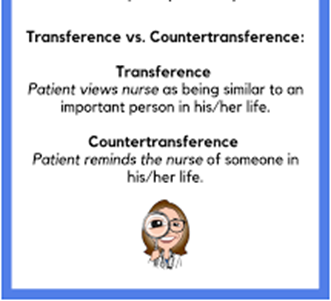A client in the mental health unit has a history of Asthma. Which axis would the nurse document this information?
Axis 3
AXIS 2
Axis 4
Axis1
The Correct Answer is A
Choice A rationale: Axis 3 is used in the documentation of conditions, for instance, asthma, hypertension, and diabetes mellitus among others which are known to have effects on an individual’s mental health.
Choice B rationale: Axis 2 is used in the documentation of conditions affecting a client’s functioning such as personality disorders and mental retardation.
Choice C rationale: Axis 4 is used in the documentation of environmental and psychosocial issues contributing to a patient’s stress such as financial and family stressors.
Choice D rationale: Axis 1 is used to document clinical disorders that are the primary focus of management such as schizophrenia, major depressive disorder, and bipolar disorder among others.
Nursing Test Bank
Naxlex Comprehensive Predictor Exams
Related Questions
Correct Answer is D
Explanation
Choice A rationale: Transference involves the client projecting feelings or attitudes onto the healthcare provider and can affect the therapeutic relationship.
Choice B rationale: Environmental problems are external issues arising from the individual’s physical and social setting such as interruptions and noise and can affect the therapeutic environment, not the nurse's emotional responses.
Choice C rationale: Resistance refers to the situation where the client consciously or unconsciously opposes or is reluctant to engage in therapeutic interventions and hinders treatment progress and outcomes.
Choice D rationale: Countertransference occurs when the healthcare provider projects their feelings and emotions, experiences, or unresolved issues onto the client. The nurse's overprotective feelings interfere with the objectivity and effectiveness of the therapeutic relationship.

Correct Answer is B
Explanation
Choice A rationale: this is inaccurate since it does not display insecurity where feelings of inadequacy or uncertainty are displayed affecting the individual’s self-esteem and confidence.
Choice B rationale: transference is a defense mechanism where the patient unconsciously transfers their feelings, expectations, and attitudes from their previous relationship to a current relationship. In this case, the client is projecting her unresolved feelings about someone who did not care for her onto the nurse, who is trying to help her.
Choice C rationale: Countertransference is the process where the nurse unconsciously transfers their unresolved feelings and attitudes from a past relationship to their clients.
Choice D rationale: secondary gain is the benefit received by an individual for being sick, for instance, attention and sympathy. The client’s statement is an indication of rejection of the nurse’s help rather than seeking a secondary gain.

Whether you are a student looking to ace your exams or a practicing nurse seeking to enhance your expertise , our nursing education contents will empower you with the confidence and competence to make a difference in the lives of patients and become a respected leader in the healthcare field.
Visit Naxlex, invest in your future and unlock endless possibilities with our unparalleled nursing education contents today
Report Wrong Answer on the Current Question
Do you disagree with the answer? If yes, what is your expected answer? Explain.
Kindly be descriptive with the issue you are facing.
